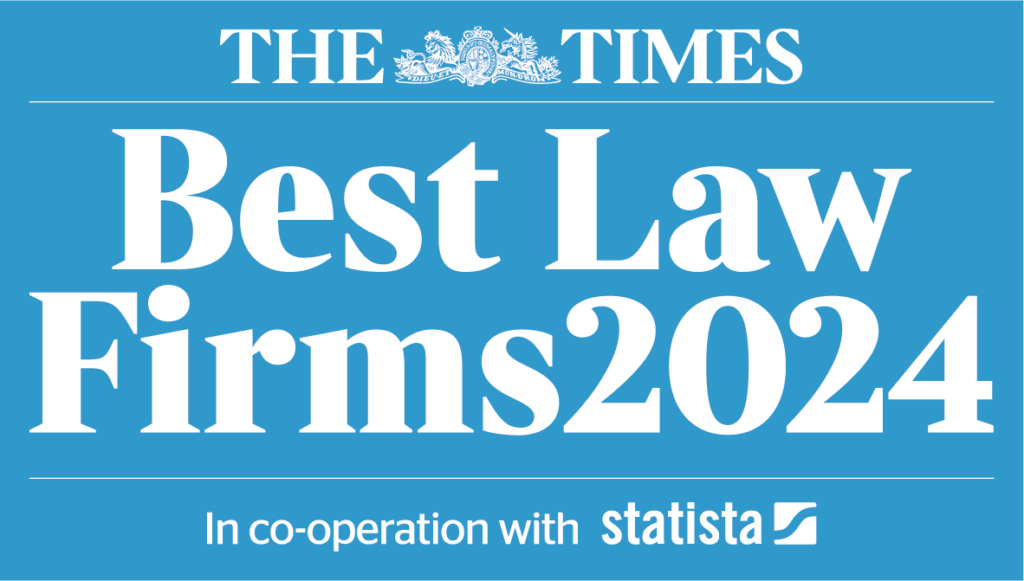Trust Solicitors
Our Private Wealth & Inheritance team have specialist trust solicitors to help with protecting your assets.
Setting up a Trust
Our Private Wealth Team can advise on how Trusts can be utilised to safeguard your assets for the future. Our team can also assist with the day-to-day administration of Trusts. Despite the perception that they are primarily to do with saving tax, there are many different types of Trusts and reasons for using them. However, one of the more common reasons for using Trusts are to protect assets for family and loved ones. Reasons for setting up a trust might be:
- Protection from Inheritance Tax
- Holding assets for minor children until they are old enough to receive them
- Providing for a spouse while protecting assets ultimately for your children
- Paying grandchildren’s school fees
- Holding funds for a vulnerable beneficiary
- Safeguarding against divorce or bankruptcy claims against children
- Protection from care fees assessed against a loved one
- Continuation of existing means-tested benefits
Life Interest Trust
In the case of a Life Interest Trust, an individual (the “Life Tenant”) has a right to receive income from Trust Property for his or her lifetime. Instead of receiving income there may be a right to occupy a property as a home. The Life Tenant of such a trust has what we call a “Life Interest”. When the Life Tenant dies, the Trust Property passes to another person or persons who are usually the ultimate beneficiaries of the Trust.
One of the most common uses of these types of Trusts is in second marriages where property is held on trust for the benefit of the second spouse during his or her lifetime after which the property goes to the children of the first marriage or the children of both marriages.
Flexible Life Interest Trusts
This is a trust where there is a Life Tenant who has a right to income but the Trustees are given the option to terminate this right. In its place they can substitute Discretionary Trusts, create new Life Interests for other people or simply terminate the trust and hand over the property to the life Tenant or some other person.
These powers are often used as part of a tax planning exercise, normally intended to move the benefit of the trust from one generation to another at minimal inheritance tax cost. These types of Trusts can be created in lifetime trusts and in Wills, and as with ordinary Life Interest Trusts, the Inheritance tax treatment depends on how the trust was created.
Discretionary Trust
A Discretionary Trust is one under which no one person has any entitlement to either capital or income of the Trust Fund. Instead, a group of people are named as potential Beneficiaries of the Trust. The Trustees are given discretion to decide which of the Beneficiaries is to receive anything and how and when they are to receive it. Generally the person creating the trust will give the Trustees some guidance as to how the Trust is to be used.
Most frequently these types of Trusts are created to provide flexibility over funds or to ring-fence assets from being eroded by divorce, failed businesses, bankruptcy or inheritance tax on the death of a Beneficiary. Because they are so flexible they can be useful when the person making the trust cannot decide what to do.
Property Trust
This is not a separate class of trust in itself; it merely explains how a trust is to be taxed. Both a Life Interest Trust and a Discretionary Trust can be a Relevant Property Trust as (in certain circumstances) they can both be taxed under the Relevant Property Regime.
A Relevant Property Trust is subject to inheritance tax when it is created and then every 10 years or when property comes out of the trust. However, it should be borne in mind that while there is a theoretical liability to tax, it may be that no tax is in fact payable. The rate of inheritance tax payable on the creation of such a trust is 20% if created during your lifetime but if created on death, or within 7 years prior to death the rate is 40%.
Bare Trust
These types of Trusts are not flexible and in practice their use is limited. A Bare Trust arises whenever property is given to a child who is a minor. English law provides that a child cannot give a valid receipt for property. Therefore property given to that child must be held on his or her behalf until they reach the age of 18. The property belongs to the child as does any income or any capital gains that might be realised buying or selling trust assets.
A Bare Trust can also arise by a simple declaration of trust being made naming Trustees and defining their powers.
Young Person’s Trust
The Finance Act 2006 created a number of new classifications of trusts for young persons. These types of Trusts must always end or be converted into one of the other classes of trust on or before the child’s 25th birthday. The inheritance tax treatment of these trusts depends upon a number of factors and is complex – we recommend that advice is sought.
Vulnerable Person’s Trust
A Vulnerable Persons Trust (VPT) is a type of Trust established for the benefit of a vulnerable beneficiary. A vulnerable beneficiary is either someone who is under 18 and has lost a parent or someone who is mentally and/or physically disabled. The aim of a VPT is to provide long-term care and financial support for the vulnerable person who may not otherwise be able to care for themselves or manage their own finances.
There are several key benefits to a Vulnerable Persons Trust (VPT) which make it an attractive option when considering how to care and provide for a vulnerable person. Some of the benefits are:
Inheritance Tax
There are different types of Trusts, some are subject to a ten-year anniversary charge to Inheritance Tax, but some, like VPTs, are not. Likewise, some Trusts are taxed when assets enter or exit the Trust, VPTs are not subject to this charge.
Capital Gains Tax and Income Tax
When determining the Capital Gains Tax owed by the Trust, typically Trustees can only use half of an individual’s annual exempt amount. However, with VPTs the Trustees have access to their beneficiary’s full annual exemption. Likewise, if the vulnerable beneficiary is a basic rate taxpayer for Income Tax purposes, the Trustees can reduce the Trust’s Capital Gains Tax and Income Tax liability by the difference between what the Trust’s tax liability would be without the vulnerable person element and how much tax would be owed by the vulnerable person if they had received the gain personally.
These tax benefits can be substantial and are important in order to maximise the funds available to benefit the vulnerable beneficiary. However, these tax benefits are not automatic and must be claimed by the Trustees.
Access to means-tested benefits
A key benefit with this type of Trust is that the value of the fund is not considered when assessing whether the vulnerable beneficiary qualifies for benefits. This is because the vulnerable beneficiary isn’t directly entitled to the Trust fund. This means that the vulnerable beneficiary can access means-tested benefits, whilst also allowing them to benefit from financial support from the Trust.
Financial protection
Holding assets within a VPT helps to ensure that they are protected. The Trustees have several duties they must comply with when acting as Trustees. These duties help to ensure that the Trust is effectively administered and that the beneficiary’s interests are both protected and promoted. This is particularly important if they would be unable to manage their finances personally or if their personal finances could be open to abuse.
Personalised care
The Trustees of the VPT can use the trust funds to pay for care, accommodation, therapy and other services which are specific that vulnerable beneficiary’s needs.
Discounted Gift Trust
A discounted gift trust is an estate planning tool that offers inheritance tax (IHT) benefits while allowing the settlor to receive regular income.
First, the settlor creates a trust, gifting assets but retaining the right to fixed payments for life. Then the gift’s value for IHT purposes is reduced by the estimated worth of these future payments.
The trust creates two separate entitlements:
- The settlor’s lifetime income
- The beneficiaries’ right to the remaining assets after the settlor’s death
This clear separation between gifted and retained assets prevents the arrangement from being considered a gift with reservation for IHT purposes.
This structure allows individuals to potentially reduce their estate’s tax liability while maintaining a steady income stream.
Gift & Loan Trust
This is another insurance linked scheme often sold by Financial Advisers. As with the discounted gift scheme it can be suitable for people with cash assets available who need to continue receiving income from those assets. Unlike the discounted gift scheme it is usually most suitable for longer term planning.
The success of this scheme relies heavily on stock markets increasing and over the last 10 years these schemes have had limited efficiency but during times of rising stock markets have proved a highly effective way of passing on wealth. Most of the disadvantages of the Discounted Gift scheme i.e. costs, the need for cash investment and the 20 year income scheme apply.
Pilot Trust
This can be almost any sort of trust. The name relates not to the type of trust but to the manner of its creation. Generally a Pilot Trust is a trust created in a lifetime, normally with a nominal sum of money. The trust remains dormant until substantive property is added to it. Most commonly this is done by way of a gift to the trustees under a Will. Once the property is received the Trustees activate the trust. The object of Pilot Trusts was either to “gift wrap” and protect funds from issues such as the divorce or bankruptcy of a beneficiary, or to enable someone to create a cluster of Nil Rate Band trusts as part of an inheritance tax planning exercise.
Life Interest Trust
In the case of a Life Interest Trust, an individual (the “Life Tenant”) has a right to receive income from Trust Property for his or her lifetime. Instead of receiving income there may be a right to occupy a property as a home. The Life Tenant of such a trust has what we call a “Life Interest”. When the Life Tenant dies, the Trust Property passes to another person or persons who are usually the ultimate beneficiaries of the Trust.
One of the most common uses of these types of Trusts is in second marriages where property is held on trust for the benefit of the second spouse during his or her lifetime after which the property goes to the children of the first marriage or the children of both marriages.
Flexible Life Interest Trusts
This is a trust where there is a Life Tenant who has a right to income but the Trustees are given the option to terminate this right. In its place they can substitute Discretionary Trusts, create new Life Interests for other people or simply terminate the trust and hand over the property to the life Tenant or some other person.
These powers are often used as part of a tax planning exercise, normally intended to move the benefit of the trust from one generation to another at minimal inheritance tax cost. These types of Trusts can be created in lifetime trusts and in Wills, and as with ordinary Life Interest Trusts, the Inheritance tax treatment depends on how the trust was created.
Discretionary Trust
A Discretionary Trust is one under which no one person has any entitlement to either capital or income of the Trust Fund. Instead, a group of people are named as potential Beneficiaries of the Trust. The Trustees are given discretion to decide which of the Beneficiaries is to receive anything and how and when they are to receive it. Generally the person creating the trust will give the Trustees some guidance as to how the Trust is to be used.
Most frequently these types of Trusts are created to provide flexibility over funds or to ring-fence assets from being eroded by divorce, failed businesses, bankruptcy or inheritance tax on the death of a Beneficiary. Because they are so flexible they can be useful when the person making the trust cannot decide what to do.
Property Trust
This is not a separate class of trust in itself; it merely explains how a trust is to be taxed. Both a Life Interest Trust and a Discretionary Trust can be a Relevant Property Trust as (in certain circumstances) they can both be taxed under the Relevant Property Regime.
A Relevant Property Trust is subject to inheritance tax when it is created and then every 10 years or when property comes out of the trust. However, it should be borne in mind that while there is a theoretical liability to tax, it may be that no tax is in fact payable. The rate of inheritance tax payable on the creation of such a trust is 20% if created during your lifetime but if created on death, or within 7 years prior to death the rate is 40%.
Bare Trust
These types of Trusts are not flexible and in practice their use is limited. A Bare Trust arises whenever property is given to a child who is a minor. English law provides that a child cannot give a valid receipt for property. Therefore property given to that child must be held on his or her behalf until they reach the age of 18. The property belongs to the child as does any income or any capital gains that might be realised buying or selling trust assets.
A Bare Trust can also arise by a simple declaration of trust being made naming Trustees and defining their powers.
Young Person’s Trust
The Finance Act 2006 created a number of new classifications of trusts for young persons. These types of Trusts must always end or be converted into one of the other classes of trust on or before the child’s 25th birthday. The inheritance tax treatment of these trusts depends upon a number of factors and is complex – we recommend that advice is sought.
Vulnerable Person’s Trust
A Vulnerable Persons Trust (VPT) is a type of Trust established for the benefit of a vulnerable beneficiary. A vulnerable beneficiary is either someone who is under 18 and has lost a parent or someone who is mentally and/or physically disabled. The aim of a VPT is to provide long-term care and financial support for the vulnerable person who may not otherwise be able to care for themselves or manage their own finances.
There are several key benefits to a Vulnerable Persons Trust (VPT) which make it an attractive option when considering how to care and provide for a vulnerable person. Some of the benefits are:
Inheritance Tax
There are different types of Trusts, some are subject to a ten-year anniversary charge to Inheritance Tax, but some, like VPTs, are not. Likewise, some Trusts are taxed when assets enter or exit the Trust, VPTs are not subject to this charge.
Capital Gains Tax and Income Tax
When determining the Capital Gains Tax owed by the Trust, typically Trustees can only use half of an individual’s annual exempt amount. However, with VPTs the Trustees have access to their beneficiary’s full annual exemption. Likewise, if the vulnerable beneficiary is a basic rate taxpayer for Income Tax purposes, the Trustees can reduce the Trust’s Capital Gains Tax and Income Tax liability by the difference between what the Trust’s tax liability would be without the vulnerable person element and how much tax would be owed by the vulnerable person if they had received the gain personally.
These tax benefits can be substantial and are important in order to maximise the funds available to benefit the vulnerable beneficiary. However, these tax benefits are not automatic and must be claimed by the Trustees.
Access to means-tested benefits
A key benefit with this type of Trust is that the value of the fund is not considered when assessing whether the vulnerable beneficiary qualifies for benefits. This is because the vulnerable beneficiary isn’t directly entitled to the Trust fund. This means that the vulnerable beneficiary can access means-tested benefits, whilst also allowing them to benefit from financial support from the Trust.
Financial protection
Holding assets within a VPT helps to ensure that they are protected. The Trustees have several duties they must comply with when acting as Trustees. These duties help to ensure that the Trust is effectively administered and that the beneficiary’s interests are both protected and promoted. This is particularly important if they would be unable to manage their finances personally or if their personal finances could be open to abuse.
Personalised care
The Trustees of the VPT can use the trust funds to pay for care, accommodation, therapy and other services which are specific that vulnerable beneficiary’s needs.
Discounted Gift Trust
A discounted gift trust is an estate planning tool that offers inheritance tax (IHT) benefits while allowing the settlor to receive regular income.
First, the settlor creates a trust, gifting assets but retaining the right to fixed payments for life. Then the gift’s value for IHT purposes is reduced by the estimated worth of these future payments.
The trust creates two separate entitlements:
- The settlor’s lifetime income
- The beneficiaries’ right to the remaining assets after the settlor’s death
This clear separation between gifted and retained assets prevents the arrangement from being considered a gift with reservation for IHT purposes.
This structure allows individuals to potentially reduce their estate’s tax liability while maintaining a steady income stream.
Gift & Loan Trust
This is another insurance linked scheme often sold by Financial Advisers. As with the discounted gift scheme it can be suitable for people with cash assets available who need to continue receiving income from those assets. Unlike the discounted gift scheme it is usually most suitable for longer term planning.
The success of this scheme relies heavily on stock markets increasing and over the last 10 years these schemes have had limited efficiency but during times of rising stock markets have proved a highly effective way of passing on wealth. Most of the disadvantages of the Discounted Gift scheme i.e. costs, the need for cash investment and the 20 year income scheme apply.
Pilot Trust
This can be almost any sort of trust. The name relates not to the type of trust but to the manner of its creation. Generally a Pilot Trust is a trust created in a lifetime, normally with a nominal sum of money. The trust remains dormant until substantive property is added to it. Most commonly this is done by way of a gift to the trustees under a Will. Once the property is received the Trustees activate the trust. The object of Pilot Trusts was either to “gift wrap” and protect funds from issues such as the divorce or bankruptcy of a beneficiary, or to enable someone to create a cluster of Nil Rate Band trusts as part of an inheritance tax planning exercise.
FAQs
What are the reasons for setting up trusts?
- Holding assets for minor children until they are old enough to receive them
- Providing for a spouse while protecting assets ultimately for your children
- Holding funds for a vulnerable beneficiary
- Paying grandchildren’s school fees
- Safeguarding against divorce or bankruptcy claims against children
- Protection from care fees assessed against a loved one
- Continuation of existing means-tested benefits
- Protection from Inheritance Tax
What are popular types of trusts?
- Age-contingent Trust
- Bereaved Minors’ Trust
- Bare Trusts
- Children’s Trust / Grandchildren’s Trust
- Discretionary Trust
- Disabled Persons’ Trust
- Trusts of Land
- Lifetime Trust
- Life Interest Trust
- Nil Rate Band Trust
- Will Trust
Do I need a advice on setting up a Trust?
Although Trusts can be flexible and useful, it is always important to ensure that proper advice is sought before entering into any Trust arrangements as there may be unintended consequences.
What do your trust solicitors advise on?
Our trust lawyers regularly advise on:
- Why, when and how to set up Trusts
- Which type of Trust would be most appropriate for your circumstances
- When they can be implied from existing circumstances
- Tax consequences and tax mitigation
- Choice of Trustees
- Trust management
- Compliance with tax obligations and regulatory requirements
- Winding up Trusts
Trust Insights
Meet the Team
Related expertise
Best Law Firms 2024
Herrington Carmichael has once again been named in the Times Best Law Firms. We were first listed in 2023 and have once again made the Best Law Firms list for 2024.




















